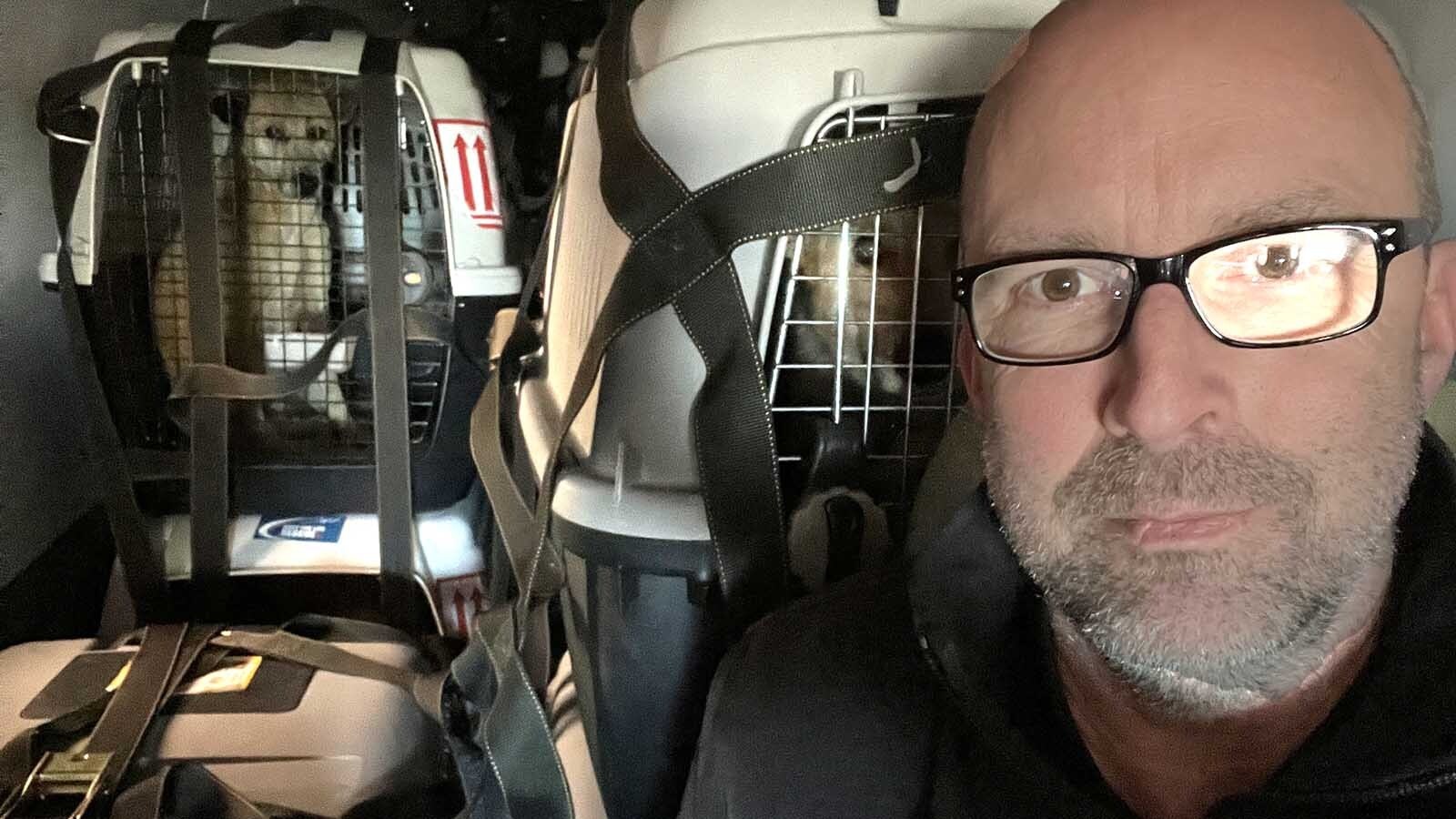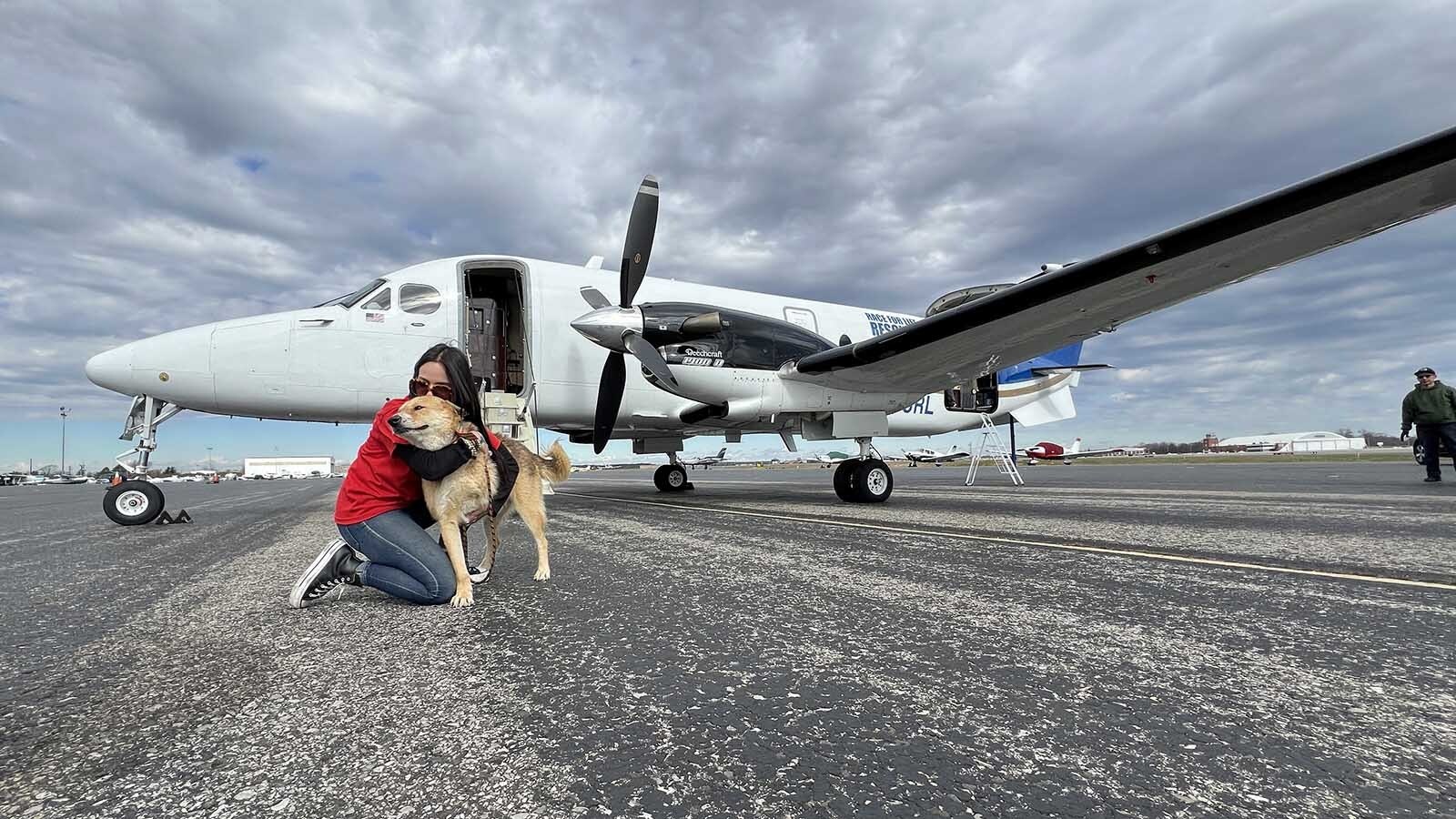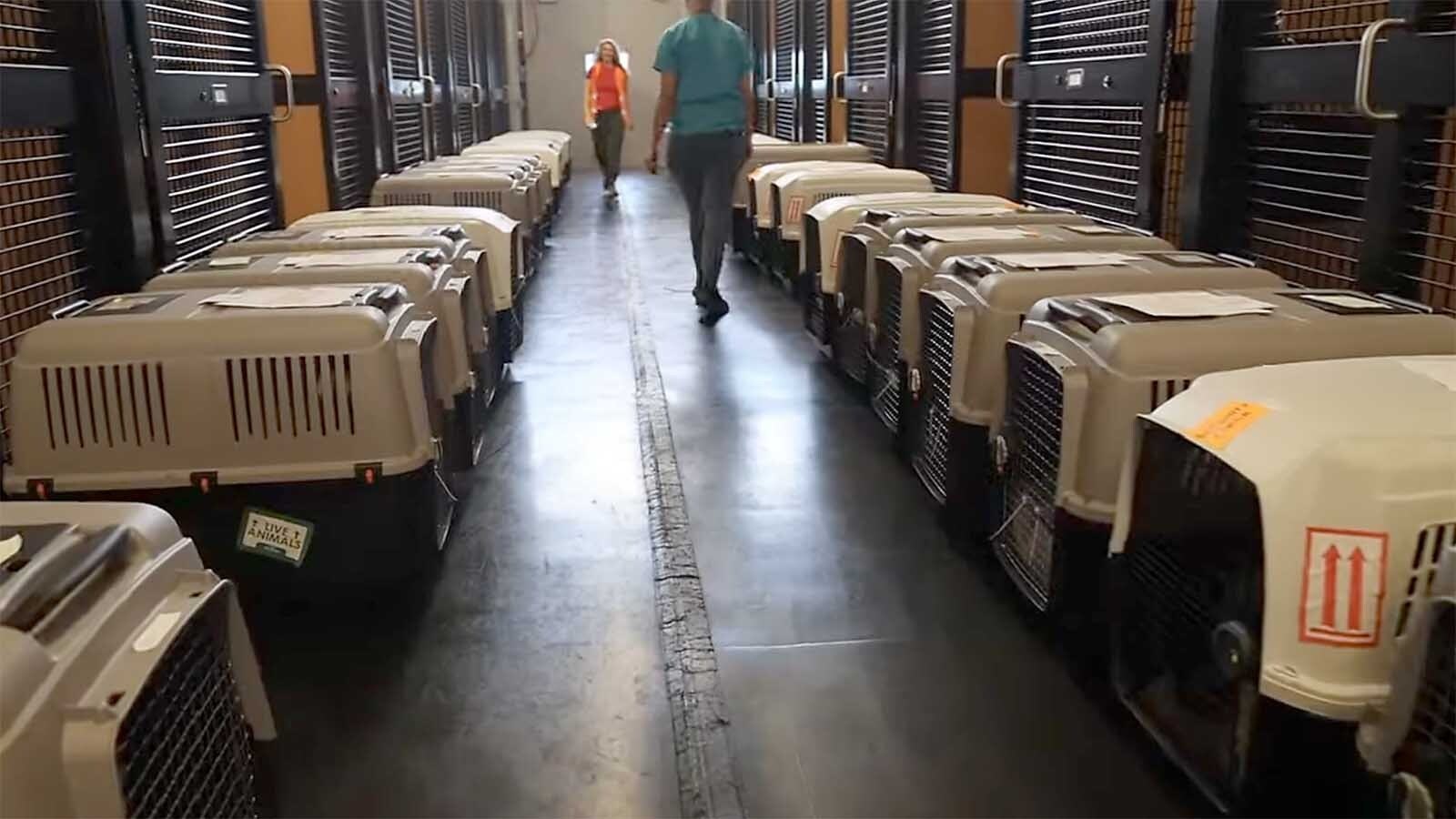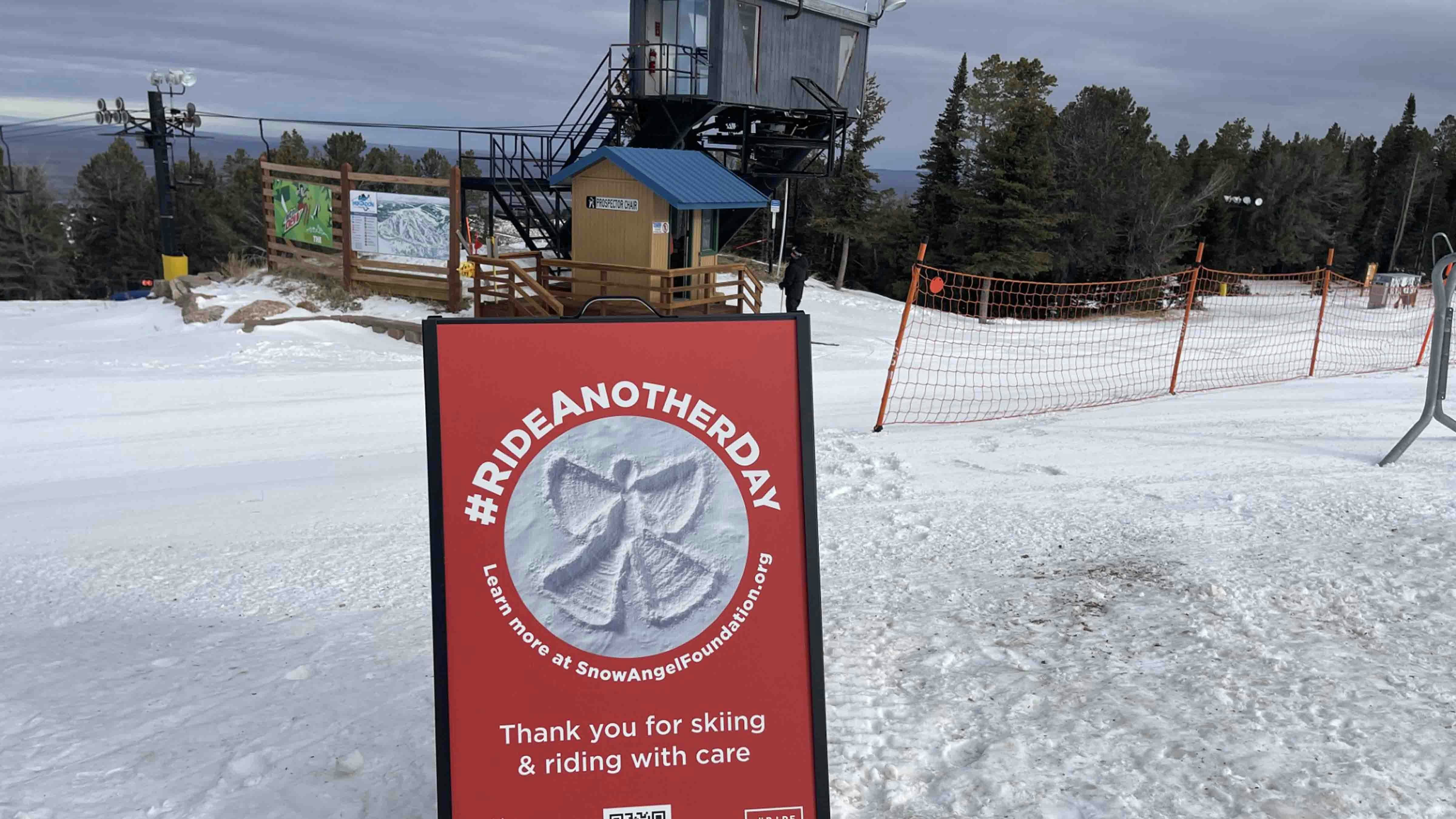The Kindness Ranch, tucked into the rural landscape around Hartville, Wyoming, is about to get a lot busier.
That’s because its mission lines up with a Trump administration directive to stop lab testing on subjects like dogs, rabbits, mice and other animals. While the directive began as a cost-saving measure under the Department of Government Efficiency, it also could mean saving the lives of more animals.
The National Institutes of Health reports that it’s closed its last lab that uses beagles for testing on its campus, and there’s new legislation introduced in Congress to require federal labs find homes for test animals rather than euthanize them.
That’s the mission of Kindness Ranch, rescuing beagles that have been raised in labs as test animals and teaching them to be dogs for the first time in their lives.
It’s a direction the folks at the Kindness Ranch cheer, even if it means they could be busier than ever.
Saving 26 More
John Ramer said he’s pleased with this week’s announcements about changes in federal lab testing policy. But he hasn’t had a lot of time to contemplate them.
Friday morning, Ramer was knee deep in logistics.
From his Houston hotel lobby, he sipped a cup of coffee while pricing charter flights to shuttle rescue beagles to partner animal sanctuaries in California after learning of another dozen or so beagles that need to be picked up.
Back in his hotel room his wife, Katy, and daughter, Jess, were sleeping off a long day of driving. The pair arrived the night before around 7 after a roughly 21-hour non-stop drive from Wyoming to Houston.
The ladies would not be staying long.
In less than six hours, they’ll head out to pick up 26 beagles from a research facility in Houston, before once again heading back home with barking pups stacked neatly in crates in the back of their van.
Ramer, meanwhile, will stick around to talk to Laura Loomer, a conservative political activist and one of President Donald Trump’s trusted advisors, on her “Loomer Unleashed” podcast before flying out in the morning.
In other words, it’s business as usual for Ramer and his team. He’s the executive director at Kindness Ranch, a 1,200-acre sprawling animal sanctuary tucked in southeast Wyoming.
The animal sanctuary is the only one of its kind that rescues only clinical test and research animals after their trials are completed. Sometimes, the organization will make an exception, such as rescuing 10 refugee dogs from the West Bank last March, but otherwise it sticks to lab animals.
The bulk of their adoptees are beagles, which is the most used test animal, but many of the 160 animals currently on site are cats, pigs, horses, llamas, goats, rabbits and other animals used in testing and research.
Companion animals like beagles and cats are rehabilitated by staff who spend time training and socializing them, so they can be adopted.
This month is a bit crazier than usual, Ramer explained, with two more rescues from facilities in Colorado planned in coming weeks as he coordinates with his trusted partners, including Beagle Alliance in Canada and Priceless Pets and Cage to Couch in California.
‘Common-Sense’ Legislation
Though typically busy, there have also been a couple significant developments in recent days regarding animal testing that have Ramer and others excited.
The first is new legislation introduced Thursday by South Carolina Republican Rep. Nancy Mace that would make it mandatory for federal agencies to facilitate the release of animals to groups like Ramer’s instead of euthanizing them at the end of their clinical trials.
HR 1465, called “Violet’s Law,” would mandate federal research facilitates release all dogs, cats, primates, guinea pigs, hamsters and rabbits to animal rescue organizations, sanctuaries, animal shelters or individuals post testing.
Ramer is elated by the news, and for the first time, he and his group have come forward to offer their endorsement.
“We are not a political organization, but when something that seems so common sense like allowing these animals a retirement plan instead of useless euthanasia, it just seems that being able to choose compassion over convenience is a direction that we should be moving,” Ramer told Cowboy State Daily.
Political Lobbying
Typically, Ramer stays out of the politics and the ethics of animal testing and instead develops discrete working relationships with the research facilities that allow him to rescue the animals after their clinical trials.
This is all his group has ever asked for, Ramer said, and he and Justin Goodman, of White Coat Waste, have made two trips to meet with legislators over the past year.
Ramer brought his beagle, Uno, with him and found he garnered universal bipartisan support – and plenty of attention on both sides of the aisle. Uno is one of the 4,000 beagles released from Envigo, the beleaguered research animal breeding facility in Virginia that had been hit with multiple citations, leading to the beagle release that was spearheaded by Ramer.
Whether the legislation has the backing of Wyoming’s delegation is yet to be known.
So far, only Sen. Cynthia Lummis has tentatively voiced her support.
“While I continue to review the specifics of H.R. 3246, my commitment to advancing legislation that upholds animal welfare and encourages ethical research remains steadfast,” read an emailed statement for Lummis. “The mission of Kindness Ranch in Platte County exemplifies what it means to give animals a second chance, and I will keep advocating for policies that support and empower organizations doing this vital work.”
U.S. Rep. Harriet Hageman’s office did not respond to a request for comment, while Sen. John Barrasso’s spokesperson, Laura Mengelkamp, said he’d “take a close look at this legislation when it comes to the Senate for consideration.”
Shuttering The Last NIH Lab
How many animals might be impacted if the legislation should pass is anybody’s guess, Ramer said, but groups like his are preparing nonetheless as the issue gains more traction on the Hill.
"It's a good problem to have," Ramer said, "and what I would personally like to see is, whether it's right now or a gradual phase over the course of the next 10 years, that all of these animals are slowly released and cared for in the highest possible fashion."
And it appears that under the Trump Administration and the Department of Government Efficiency, the tide is turning when it comes to unfettered spending within agencies and the use of animals in research in general.
On May 4, for example, Jay Bhattacharya, director of the National Institutes of Health, announced on national media that he was shutting down the agency’s last in-house beagle laboratory on campus.
The move follows a nine-year investigation by White Coat Waste (WCW) that exposed the NIH’s septic shock beagle experiment in which more than 2,133 beagles were killed after pneumonia-causing bacteria was reportedly injected into their lungs, before bleeding them out and forcing them into septic shock.
Many beagles died within the course of the four-day experiment, and those that survived the infection were subsequently killed and stuffed into a freezer, according to information provided by White Coat Waste (WCW).
The nonprofit is a staunch proponent of ending animal testing within federal agencies.
Among some of their accolades is leading efforts to shut down the USDA’s largest cat laboratory, dubbed the “Kitten Slaughterhouse,” and ending testing on the Veteran Administration’s cats and kittens among others.
Justin Goodman, senior vice president of advocacy and public policy at WCW, said it took 15 Freedom of Information Act requests and three separate lawsuits to expose the septic shock experiment.
Goodman has testified before Congress on the issue and has worked with DOGE to earmark billions of dollars in line items regarding animal testing projects around the world.
It took nine years, Goodman said, but the closure of this lab marks the last one for the agency.
“The Trump administration's decision to shutter this lab marks the complete end of dog testing inside the NIH,” Goodman told Cowboy State Daily.
He said he’s happy to see the Trump administration taking a stance.
In the past, Goodman noted that Bhattacharya has long been a critic of animal testing as wasteful and inefficient, so he was happy to see the director take action, though he noted there’s still a long way to go.
Right now, he estimated that there are over 20 government agencies that are involved in some way in funding or mandating animal testing,
So far, only four federal agencies have eliminated animal testing, including NIH, the Food and Drug Administration, the Department of Veterans Affairs and the Department of Defense, Goodman said.
And though the NIH labs have been shuttered, the agency still provides funding for animal research to universities and other research facilities. Last year, the agency spent most of its $48 billion budget through approximately 50,000 grants given to 300,000 researchers at more than 2,500 universities, medical schools and research institutions in the U.S. and other countries, according to the NIH figures.
Of all the federal agencies, Goodman said he thinks the NIH is public enemy number one when it comes to animal testing.
Looking For Alternatives
Apart from the animal cruelty aspect, Goodman said most people aren’t aware of the millions of taxpayer dollars being spent on research that he argues yields little results.
Along with being a big business for both researchers and test animal breeding facilities, both Goodman and Ramer question why scientists and agencies aren’t looking for other ways to do research, such as AI modeling.
“It's their comfort zone, and there's no incentivization to move away from it,” Goodman said, “and there won't be until enough people are aware of it.”
Goodman and Ramer work closely, and Ramer has been involved in several rescues from NIH labs. Ramer wants to remain agnostic on the politics, noting that he and his group will continue to work with research facilities to rescue labs and provide the animals with a path to homes and a happy retirement.
In the meantime, he’s got another 26 beagles to pick up.
Jen Kocher can be reached at jen@cowboystatedaily.com.














